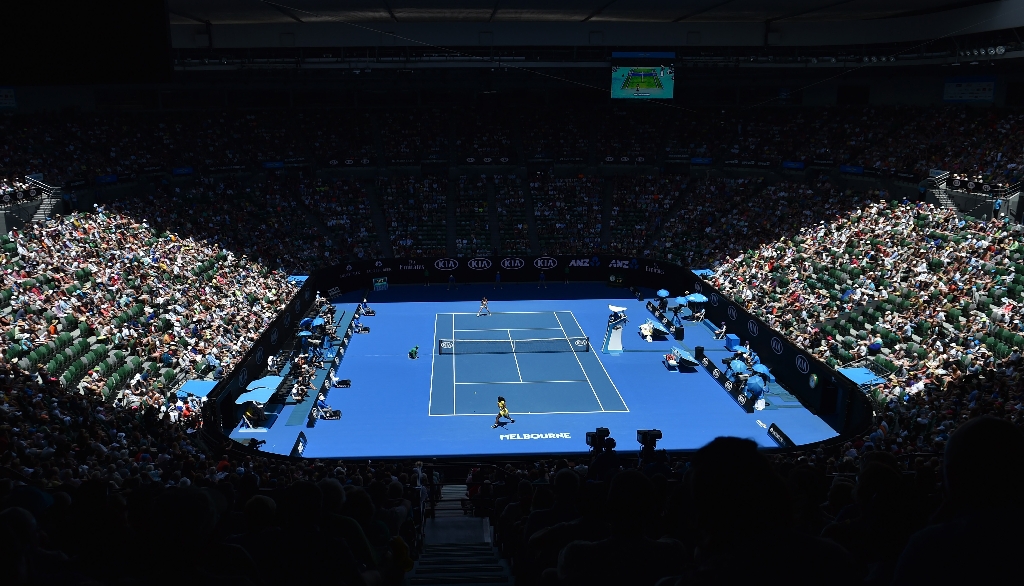New report charges major match-fixing scandal at highest levels
The major talk at the first day of the Australian Open was not the play on the court, but the scandal swirling above it.
A new report by BuzzFeed and the BBC charges “widespread match-fixing by players at the upper level of world tennis.” The report charges that a collection of 16 players, all of whom have reached the world Top 50, have participated in match-fixing, and that more than half of those players are in the field this week at the Australian Open. The report did not name any names, but charged that tennis’s governing bodies have repeatedly ignored evidence of match-fixing.
The BuzzFeed/BBC report relies on leaked internal documents as well as independent analysis of betting patterns around 26,000 matches, and found what the publications consider compelling evidence of match-fixing connected to organized crime syndicates in Russia and Italy. This investigation follows the 2008 revelation of alleged match-fixing at matches all over the world, a revelation that ultimately ended without any real resolution.
Investigators began cross-referencing playing and betting patterns in matches when players lost after the odds against them winning shifted substantially and suddenly. An algorithm determined that the chances of players losing after odds shifted so dramatically from their opening were less than one in 1,000.
The report charged that the core group of 16 suspected of match-fixing includes winners of Grand Slam singles and doubles titles in Grand Slam events, and that one player in the Top 50 now at the Australian Open has been accused of repeatedly fixing his first set. In the scheme, players are offered $50,000 or more per fix when visited in their hotel rooms.
World tennis officials took issue with the idea that the sport has gone easy on corruption, noting that their Tennis Integrity Unit has disciplined 13 low-level men’s players and banned five for life. The BuzzFeed/BBC investigation declined to name the players suspected of fixing because proving such allegations is tricky without access to bank records and text messages. However, the Tennis Integrity Unit does have the power to demand such records, but apparently has not done so.
“We have built an international reputation for the integrity of the tournament and the anti-corruption systems we have in place,” said Tennis Australia Chief Executive and Australian Open Tournament Director Craig Tiley. “In conjunction with world tennis we have developed leading anti-doping, disciplinary, anti-corruption and security policies. All involved in the administration of the Australian Open will not tolerate any deviations from our values and rules at any level.”
Players competing on Day 1 of the Australian Open had to address the scandal almost from the moment they walked off the court. “I would love to hear names. Then at least it’s concrete stuff and you can actually debate about it. Was it the player? Was it the support team? Who was it? Was it before? Was it a doubles player, a singles player? Which slam? It’s so all over the place. It’s nonsense to answer something that is pure speculation.”
Novak Djokovic once said that he was offered $200,000 to throw a match; he never even met the alleged fixer and did not play in the tournament where the match would have occurred. “For me, that’s an act of unsportsmanship, a crime in sport, honestly,” he said on Monday. “I don’t support it. I think there is no room for it in any sport, especially in tennis.”
Federer disagreed with the idea that increasing the money at tennis’s lower levels would solve the problem. “It doesn’t matter how much money you pump into the system, there’s always going to be people approaching players, or people, any sport,” he said. “I agree we should have more money at futures, challengers, all these levels. But it’s not going to solve the issue. The issue is elsewhere, in the player’s mind.”
“Tennis remains fully committed to meeting the challenge that all sports face from corrupt betting practices,” said Chris Kermode, Executive Chairman of the ATP, speaking on behalf of tennis’s many governing bodies. “We have stringent procedures and sanctions in place to deal with any suspected corruption and have shown we will act decisively when our integrity rules are broken. No player or official is immune from investigation, regardless of their status or position in the sport. Investigations follow where evidence leads.”
____
Jay Busbee is a writer for Yahoo Sports and the author of EARNHARDT NATION. Contact him at jay.busbee@yahoo.com or find him on Twitter or on Facebook.
